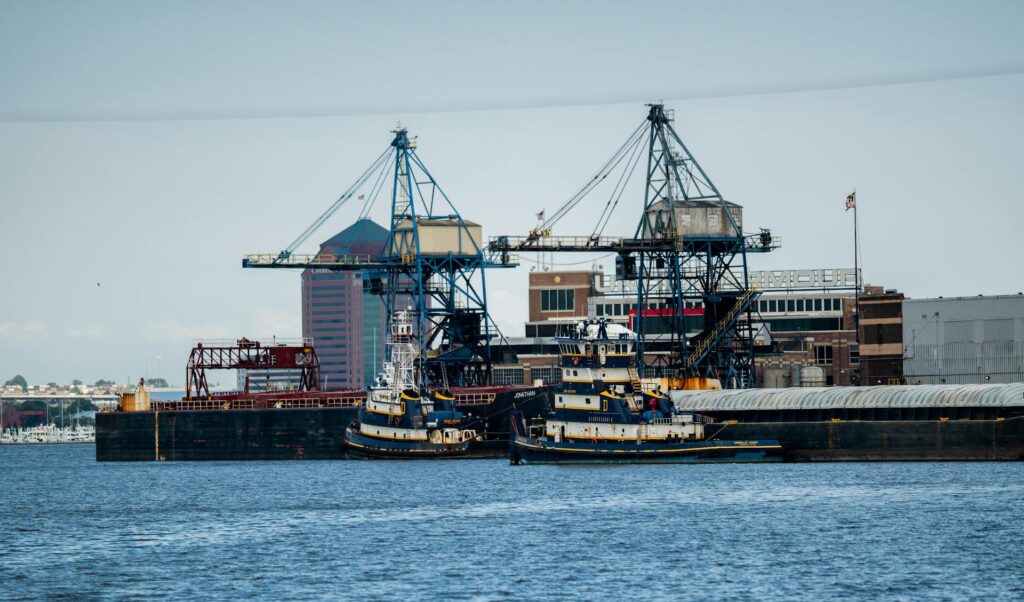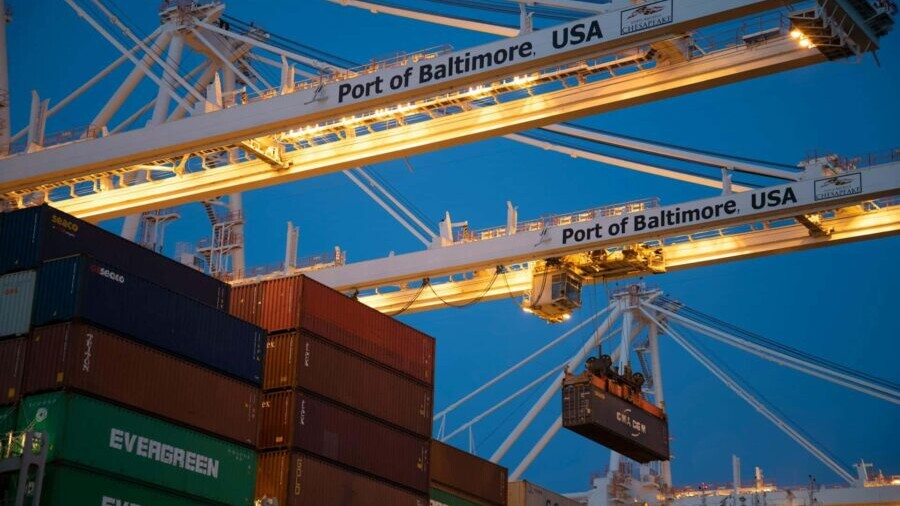Whistleblowers are a hot topic right now with many companies being in trouble after it was discovered that they were trying to silence them. Most recently, the company under fire is Maersk Line Limited, which chartered the ship that collapsed the Francis Scott Key Bridge in Baltimore. It was now revealed that the company prevented employees from reporting issues to the US Coast Guard, which, in the US, is a violation of the law. However, there is another problem here.
When an employee went directly to Maersk Line to report a problem, they were retaliated against. The employee reported unsafe working conditions, which Maersk Line ignored, showing that whistleblowers are not welcomed in the organisation. This type of behaviour caused federal staff to believe that Maersk was breaching the Seaman’s Protection Act.
If Maersk had not silenced whistleblowers and instead had actively investigated the claims and safety deficiencies that were found – would this tragedy still have happened? It’s hard to say definitively, as this was a chartered vessel, but creating a safety-focused ‘speak up’ culture would have greatly reduced the risks.
Are you encouraging whistleblowers?
Whistleblowers like the ones who tried to speak up in Maersk Line are really important for the future of a company. Unfortunately, when they speak up and receive disciplinary action before being fired, this is unlikely to lead to more people speaking up. Whistleblowers sometimes receive a ‘snitches get stitches’ view from others, including managers of a company. Instead of seeing them as individuals who are trying to improve working conditions, and uncover fraud and corruption, they may be seen as snitches which has a negative connotation.
Many times, whistleblowers are afraid because of the retaliation that may follow. They are uncertain about what to expect and they choose to not say anything at all, which is more damaging for an organisation.
Why is that?
It all starts with the type of company culture a business wants to create. An ethical company that wants employees to come forward with issues, whether that is fraud or harassment, cares about staff and the organisation. Businesses of all types should support whistleblowing. Even if they are struggling to see it as a positive thing. The unfortunate reality is that whistleblowers are not given reasons to report problems. It’s not just an issue in the US but in Australia as well as other countries.

Consequences of silencing whistleblowers
The example of how whistleblowers are treated in your company is set once an employee speaks out about issues. The way that employee is treated gives a great example to other staff members of what the values of the company are and what will happen if anyone else speaks out. This is where the decision needs to be made. Are you going to silence, ignore and discipline whistleblowers? You need to be aware of the following consequences:
- Productivity drop
- Financial loss
- Lower retention rates
- Reputation damage
- Possible business failure
Productivity drop
If an employee speaks out about unsafe working, including harassment and bullying, then they are giving the company a chance to investigate and take action. Failing to take concerns seriously could show all employees that the organisation doesn’t value them. Staff wants to see change while the company wants to keep things as they are. There may be multiple reasons for this:
- The company is corrupted which means people in power are protecting one another
- Investigations into issues are seen as expensive so they don’t want to bother
- The organisation is wary of what happens if an issue is uncovered so it chooses to cover it up instead
Unfortunately, this type of decision-making is very likely to lead to demotivated employees, causing productivity levels to drop. No one is happy when working for a business where they get harassed, or mistreated, and no one takes action.
Financial loss
Whistleblowers usually report issues that are illegal or unethical. If the individuals are silenced, then the situation is likely to worsen, leading to the company paying hefty fines and being investigated by external bodies. This is especially true in cases where an individual will report multiple issues, they will get ignored, the individual then leaves the company and reports the same issues to the government. Not only did the company drive an important and ethical employee away, but it also allowed itself to be exposed to financial losses as a result of a bad reputation and government investigations.
Lower retention rates
There are a few ways for employees to react. Let’s explore two of them:
- Once an employee has reported issues within the workplace and they are ignored, the employee chooses not to report further issues. They choose to allow company ‘leaders’ to self-destruct as a form of retaliation for being ignored. This causes bigger problems within the company, leading to many employees to quit.
- After an employee tries multiple times to report unsafe working conditions, they give up, and leave the company. This may happen many times as each employee who spoke out chooses to look for a better workplace. The company is slowly losing talented individuals and destroying its work environment by not taking action.
Reputation damage
The cargo ship crashing into a bridge is a worst-case scenario for any company that ignores whistleblowing. Another recent example of a company ignoring whistleblowers is Boeing, where employees warned the company against production defects before warning the public. As a result, people choose to not fly with Boeing planes, airlines have sent planes back and are hesitant about ordering new ones.
Reputational damage is usually worse for bigger companies. However, Maersk Line’s ship led to the collapse of a bridge, which is why they won’t be forgotten for a long time.
We live in the age of social media, and reputational damage can last as long as the public wants it to last. Boeing is experiencing a huge backlash, with young people constantly mocking the company and influencing older generations. This means that the company will take a long time to recover, all because whistleblowers were ignored.
Possible business failure
Maersk Line is likely to pay many fines in relation to the lives lost, bridge collapse, unsafe working conditions and silencing whistleblowers. The expenses of the company are likely to rise and while Maersk Line may be in a position to handle its financial burden for a while, other companies may not be in the same position. The constant back and forth with the government requires resources, resources that organisations may have used for expansion and growth.
By not listening to whistleblowers, businesses leave themselves vulnerable to competitors having an advantage. That could be competitors having more resources, higher productivity, market preference and hence more sales.
It will be difficult for businesses to win back market favour, which is usually what leads to business failure. Acquiring back lost market share is extremely hard for any company, especially one with a damaged reputation.
Protect and encourage whistleblowers
Whistleblowers are essential as they care about better working conditions in the business. They want to see fraud, corruption and other issues resolved, helping the company succeed. When it comes to work health and safety conditions, early reporting can prevent an accident, protect the well-being of the employees and assist the organisation in preventing fines.
When employees come forward with an issue, listen to them. Try to understand why they are reporting the problem, what it could mean for the company and determine what the correct course of action is. Hint: It’s not ignoring the employee.
If you think employees are hesitant to report issues, create a whistleblowers policy. This will highlight your commitment to maintaining a safe and productive work environment where employees are cared for. A whistleblower policy can remove any fear of retaliation employees may have had. They know that you will support them if they speak out, not silence them and fire them.
It may also be a good idea to educate employees on the importance of whistleblowers. If employees are looking at whistleblowing as snitching, training may assist in changing that perspective and helping them see it as a favourable action. They are not doing something wrong, they are doing something positive that can help protect others as well as the future of the business.
Another tip: Make reporting confidential. Employees may feel more comfortable reporting a problem if their identity is concealed. That way they may share more information without being afraid of what will happen to their employment.
Barriers to taking action
There are many scenarios where companies want to take action but are uncertain of what steps to take and how to approach the situation. A huge barrier that may stop companies is the cost of a workplace investigation.
At Polonious, we have dealt with many whistleblowers’ reports as we have been working with investigators for almost two decades. We know how to assist investigators to improve their workflows and automate manual tasks to make the process as easy and pain free as possible. This means faster turnaround times and lower costs for the business. Our clients have achieved up to 37% time savings as a result of our case management system.
If you are looking for a secure and high quality case management system to help you in your investigation process, you are in the right place. We are ISO 9001 and ISO 27001 certified and we are always looking for ways to improve our system further. Do you want to see how we can help you? Book a demo!
Let's Get Started
Interested in learning more about how Polonious can help?
Get a free consultation or demo with one of our experts
Eleftheria Papadopoulou
Eleftheria has completed a Bachelor's of Business with a major in Marketing at the University of Technology Sydney. As part of her undergraduate studies she also obtained a Diploma in Languages with a major in Japanese. Following her graduation she has been working as a Marketing Coordinator and Content and Social Media Specialist.
Eleftheria is currently finishing her Master in Digital Marketing.




